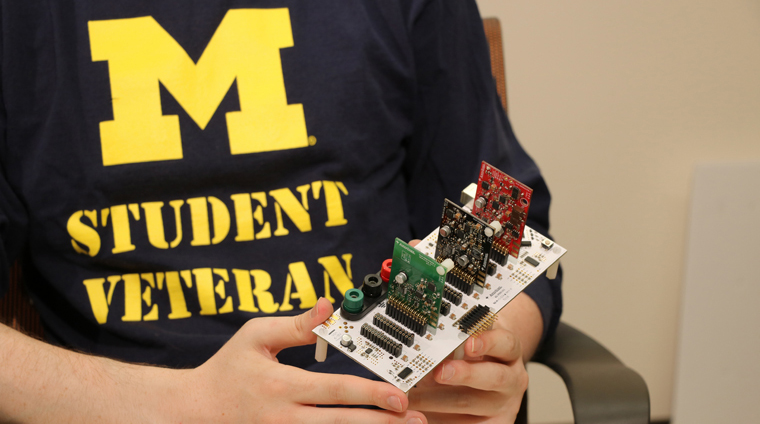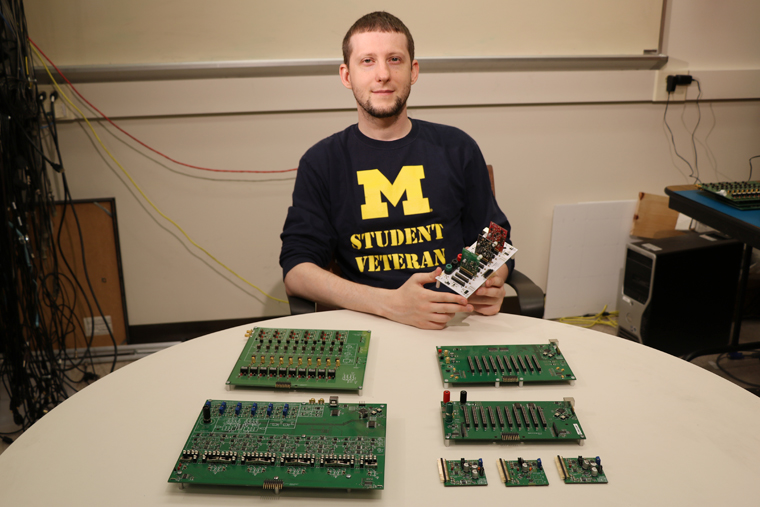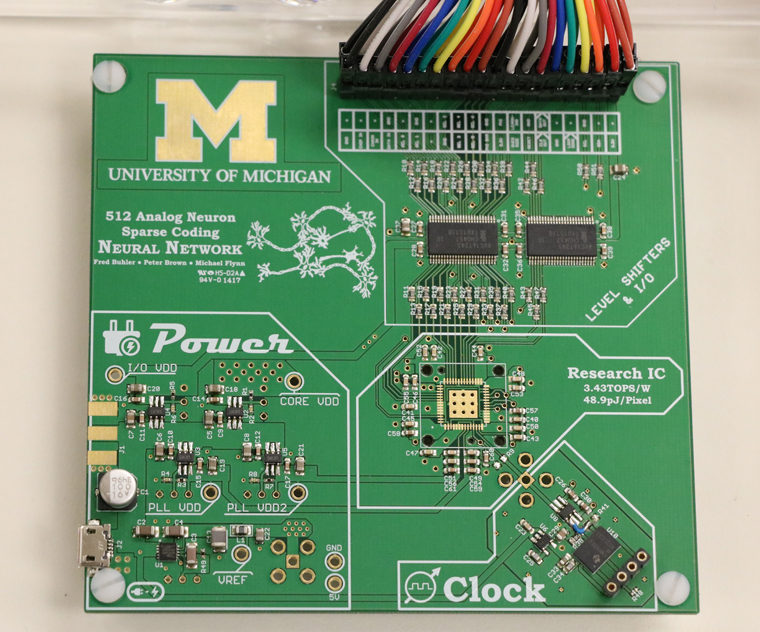Fred Buhler builds better chips for “Aweslome” applications
Fred Buhler founded Aweslome to provide custom-build chips for a broad range of applications, including machine learning, neural networks, security, and circuits testing.

 Enlarge
Enlarge
ECE PhD student Fred Buhler is working on more efficient chips for a broad range of applications, including machine learning, neural networks, security, and circuits testing. A member of Prof. Michael Flynn’s lab since he was an undergrad, Buhler’s work has resulted in high-profile published papers and a new company, Aweslome, LLC.
Aweslome was founded in 2016, and is currently owned and operated solely by Buhler. The company offers consulting work on custom hardware platforms, and sells equpiment designed to help small fabless and research integrated circuit (IC) designers test and characterize their own products. His products condense the functionality of bulky and expensive lab equipment into a single small platform, and show superior noise characteristics under all testing conditions.
The company is in the process of closing its first sale, and has other interested parties waiting for the next model’s fabrication. Additionally, he’s already done consulting work for four companies around the state, including ECE alum Mohammad Faisal’s startup Movellus Circuits.
This platform is software-controlled and modular, allowing for flexibility that small companies and research labs typically lack. Until now, if these groups wanted a low-noise, modular, software-controlled reference, they’d look at costs of at least $5,000-10,000. Cheaper solutions mean they’d have to spend time in their lab tuning their circuits by hand, usually with a screwdriver, while interpreting the test results.

 Enlarge
Enlarge
Buhler began work on this technology as an undergrad, when he spent his summer working in Prof. Michael Flynn’s lab as part of the College of Engineering Summer Undergraduate Research Experience program (SURE). He had just arrived at Michigan as a transfer student the previous academic year, and wanted to get some actual research experience.
The early models of his device saved Prof. Flynn’s research group $100K in test equipment while simplifying the entire testing process. Now, several redesigns and a business later, the group is purchasing Buhler’s latest model for the lab as one of his first customers. He was helped along the way by courses and a grant from the Center for Entrepreneurship, funding the assembly of his most recent model.

 Enlarge
Enlarge
Buhler remained with Prof. Flynn’s lab when he started his PhD studies, after graduating summa cum laude in electrical engineering from Michigan. He now works on a variety of analog-digital circuits, focusing in his first two years on using analog circuit blocks to do efficient computation for machine learning and neural network applications. His research has already resulted in two articles published in the IEEE Symposium on VLSI Circuits.
Incorporating analog computation into a digital system gives the benefit of faster, more efficient computation for many of the core processes that drive machine learning. This comes without designers needing to abandon their usual digital work interface.
Currently, Buhler is working on a new chip for nuclear security applications. This chip will address the problems that arise when two nations need to measure each other’s nuclear arsenals, without revealing classified information.
For the moment, Buhler is content to keep Aweslome small and manageable. With products that appeal to a niche of research startups and university labs, he doesn’t expect it to grow into a giant – but he’s already received interest from a number of labs around the country.
“I’ve had at least three visiting researchers tell me they’d be my first customer,” Buhler says, referring to guest lecturers who have toured the lab. “I’ve got plenty of other opportunities if this doesn’t grow into something that could sustain me on its own,” he says. “That takes the stress off, and makes this whole process very enjoyable.”
 MENU
MENU 
